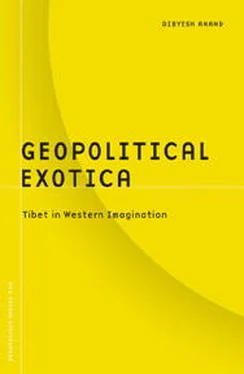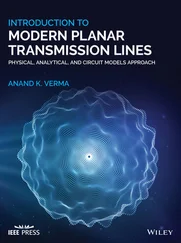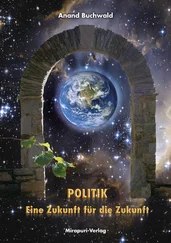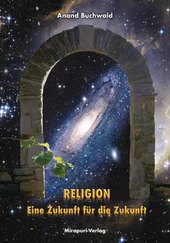This work is a call for a postcolonial IR theoretical approach, the space for which has been cleared by the postpositivist debates. It challenges the commonplace ignorance of the history of imperialism and colonialism in the analysis of supposedly "intractable" political problems in the postcolonial world. It highlights the centrality of the concept of representation to the Western enterprise of knowledge production about its Others. It bares the "real" impact of rhetorical utterances and practices. Geopolitical Exotica explores asymmetrical power relations in the discursive production of "Tibet" as a specific site of West-non-West encounter in and beyond the twentieth century. It emphasizes the (re)productive relation between representation and identity and performs a deconstructive cultural analysis of Western images of Tibet by looking at the poetics of representation, which entails recognition of the contingency of identity without giving up the notion of agency. It theorizes Tibetan identity discourses as constitutively and performatively produced in relation to Western imaginaries and imageries, the politics of representation. Though Orientalism finds itself "constantly appropriated, reworked, and re-accentuated in the utterances of others" (Ha 2000, xii), the asymmetrical operation and effect of the power-knowledge nexus remains its chief characteristic.
Postcolonial IR thus offers an effective understanding of the political and productive effect of Western representational practices, especially on non-Western people. The poetics (the "how" question) and politics ("what impact" question) of Western representations are legitimate and vital areas of inquiry for IR because these support particular foreign policy regimes and have a productive effect on the identities of political actors. Postcolonial IR appreciates the importance of popular culture for our understanding of world politics. It alerts us to the fact that what we accept as real is a "changeable and revisable reality… Although this insight does not in itself constitute a political revolution, no political revolution is possible without a radical shift in one's notion of the possible and the real" (Butler 1999, xxiii).
How can we understand more effectively the ways in which Western representations of the Other ("the Exotic") generate vexing political problems in the contemporary postcolonial world? In order to get at this question, I have utilized resources from International Relations, postcolonial and cultural theory, and Tibetan studies to interrogate Exotica Tibet in terms of its poetics (how Tibet is represented) and its politics (what impact these representational regimes have on the represented). I have sustained an empirical study of one specific geopolitical exotica-Exotica Tibet-to substantiate theoretical arguments about the role of representation and identity in the theory and praxis of world politics.
The poetics and politics of Exotica Tibet mark a new way of enculturing political analysis and politicizing cultural criticism, one that seeks to open the endeavor of IR to new vistas. Hybrid endeavors such as postcolonial international relations theory contribute to changing IR from being a "discourse of limits" (Walker 1995, 34) to what I would like to call a discourse of empowering criticality.
Abbots, A. 1997. Naked Spirits: A Journey into Occupied Tibet, London: Canongate Books.
About Tibet. 2006. Available at http://www.tibet.org(accessed 24 March 2006).
Adam, I., and H. Tiffin, eds. 1991. Past the Last Post: Theorizing Post-Colonialism and Post-Modernism, London: Harvester Wheatsheaf.
Adams, V. 1996. "Karaoke as Modern Lhasa, Tibet: Western Encounters with Cultural Politics." Cultural Anthropology 11, no. 4: 510-46.
____________________. 1998. "Suffering the Winds of Lhasa: Politicized Bodies, Human
Rights, Cultural Difference, and Humanism in Tibet." Medical Anthropology 12, no. 1: 74-102.
Addy, P. 1984. Tibet on the Imperial Chessboard: The Making of British Policy towards Lhasa, 1899-1925. Calcutta: Academic Publishers.
Agathangelou, A. 2004. Global Political Economy of Sex: Desire, Violence, and Insecurity in Mediterranean National State. Basingstoke, England: Palgrave Macmillan.
Agathangelou, A., and L. H. M. Ling. 2004. "The House of IR: From Family Power Politics to the Poisies of Worldism." International Studies Review 6, no. 4: 31-49.
Ahmad, A. 1994. In Theory: Nations, Classes, Literatures. London: Verso.
Ahmed, S. J. 2006. "Tibetan Folk Opera: Lhamo in Contemporary Cultural Politics." Asian Theatre Journal 23, no. 1: 156-78.
Allen, C. 1999. The Search for Shangri-La: A Journey into Tibetan History. London: Abacus.
Amin, S. 1988. Eurocentrism. London: Zed.
Anand, D. 2000. "(Re)Imagining Nationalism: Identity and Representation in Tibetan Diaspora in South Asia." Contemporary South Asia 9, no. 3: 271-87.
____________________. 2002a. "A Guide to Little Lhasa in India: The Role of Symbolic
Geography of Dharamsala in Constituting Tibetan Diasporic Identity."
In Tibet, Self, and the Tibetan Diaspora: Voices of Difference, ed. P. C.
Klieger. Leiden, Netherlands: Brill.
– -. 2002b. "A Story to Be Told: IR, Postcolonialism, and the Tibetan
(Trans)Nationalism." In Power, Postcolonialism, and International
Relations: Reading Race, Gender, and Class, ed. G. Chowdhry and
S. Nair. London: Routledge.
– -. 2003. "Travel-Routing Diaspora… Homing on Tibet." Diaspora
12, no. 3: 211-29.
____________________. 2006a. "The West and the Tibetan Issue." In B. Sautman and J. T.
Dreyer, eds., Contemporary Tibet: Politics, Development and Society in a Disputed Region. Armonk, N.Y.: M. E. Sharpe.
____________________. 2006b. "Archive and the Poetics of 'Exotica Tibet.'" In Tibetan
Borderlands: Proceedings of the Tenth Seminar of the IATS, 2003, ed. P. C. Klieger. Leiden, Netherlands: Brill.
Anderson, B. 1983. Imagined Communities: Reflections on the Origin and Spread of Nationalism. London: Verso.
Anderson, K., and F. Gale, eds. 1992. Inventing Places: Studies in Cultural Geography. Melbourne: Longman Cheshire and Wiley Halsted Press.
Ardley, J. 2002. The Tibetan Independence Movement: Political, Religious, and Gandhian Perspectives. London: RoutledgeCurzon.
Aris, M. 1994. "India and the British According to a Tibetan Text of the Later Eighteenth Century." In Tibetan Studies: Proceedings of the 6th Seminar of the International Association for Tibetan Studies, Fagernes 1992, ed. P. Kvaerne. Oslo: Institute for Comparative Research in Human Culture.
Ashcroft, B., G. Griffiths, and H. Tiffin. 1989. Empire Writes Back: Theory and Practice in Post-Colonial Literatures. London: Routledge.
____________________, eds. 1995. The Post-Colonial Studies Reader. London: Routledge.
Ashley, R. K., and R. B. J. Walker. 1990a. "Speaking the Language of Exile: Dissident Thought in International Studies." International Studies Quarterly 34, no. 3: 259-68.
____________________. 1990b. "Conclusion: Reading Dissidence/Writing the Discipline:
Crisis and the Question of Sovereignty in International Studies." International Studies Quarterly 34, no. 3: 367-416.
Avendon, J. F. 1984. In Exile from the Land of Snows. London: Michael Joseph.
Bailey, F. M. 1957. No Passport to Tibet. London: Travel Book Club. Balakrishnan, G., ed. 1996. Mapping the Nation. London: Verso.
Barber, N. 1969. From the Land of Lost Content: The Dalai Lama's Fight for Tibet. London: Collins.
Barker, D. 1999. "Free Spirits: Tibet in Exile." Photo exhibition. Available at http://www.friendsoftibet.org/diane.html(accessed 2 October 2001).
Barker, F., P. Hulme, and M. Iversen, eds. 1994. Colonial Discourse, Post-colonial Theory. Manchester, England: Manchester University Press.
Читать дальше












